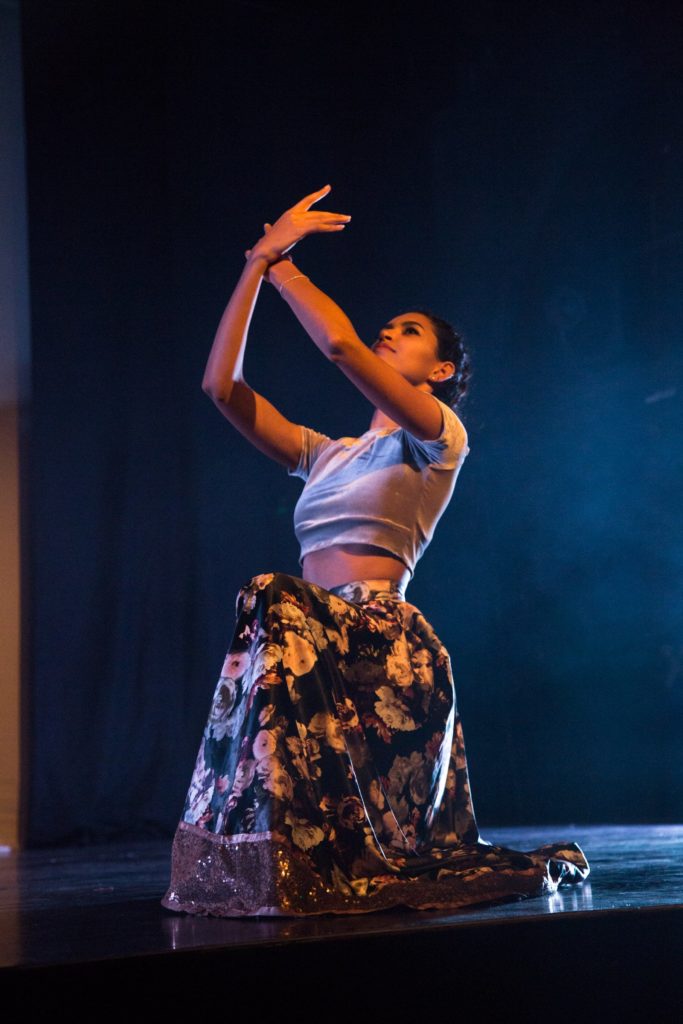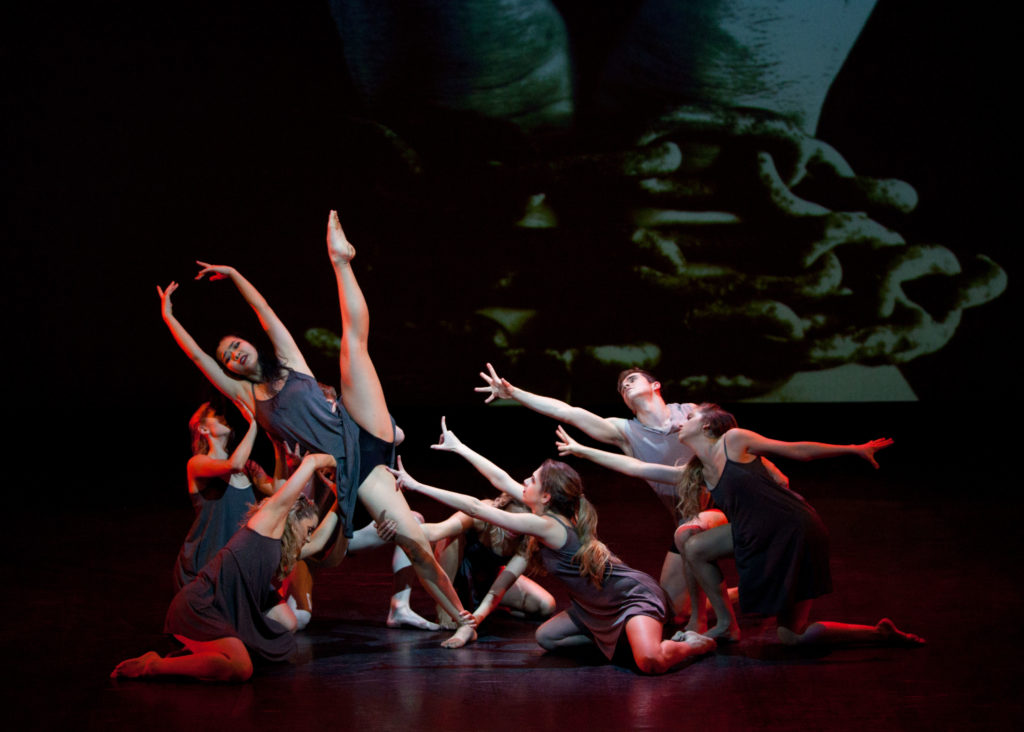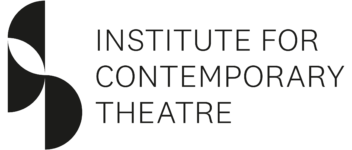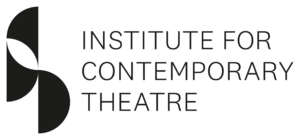BA (Hons) Performing Arts (Top-Up)
Opportunity to join the final year of the BA (Hons)Performing Arts course available at:
Are you passionate to learn more about your craft?
If you hold a UK Level 5 qualification (or equivalent) or a Trinity College London Professional Diploma in Performing Arts or a similar subject and wish to earn a full honours degree, our flagship BA Hons in Performing Arts and its 3 unique pathways, provides in-depth training shaped by current industry trends.
ICTheatre’s specialised one-year Degree Top-up programme has been designed to enable committed performers to extend their understanding of performing arts in either: Contemporary Musical Theatre, Acting for the 21st Century or Hip Hop Artistry.
The course offers students and practitioners the opportunity to explore aspects of these pathways not usually addressed in vocational training and provides access to further HE study and enhanced employment opportunities when considering career progression.
As part of our Top Up Degree, you have the chance to select from specific options to meet the needs of the industry. Here you can diversify your training and home in on areas you may have previously explored in less depth. This is a crucial element of training as you can explore your identity as an emerging creative artist.

This course encourages independence, entrepreneurialism, and innovation because any performer entering the contemporary performing arts industry will require these qualities. We don’t want you just to get work; we want you to create work.
All learning is underpinned by mental and physical resilience classes, another critical element of your training.
You will need to be resilient on entering this notoriously hard profession. You should also be equipped with life skills, which you can apply within various contexts far beyond your training.
This course is validated by BIMM University and taught at ICTheatre. Upon successful completion, students receive a degree from BIMM University.

Course Specification
Mode of Attendance: Full-time
Length of course: 3 years (final year only via Top-Up Route)
Awarding institution: BIMM University
Campus delivery: Brighton and Manchester
Language of study: English
Final award: Bachelor of Arts (Hons)
Minimum Requirements
Completion of Level 5 Qualification or Trinity College London Professional
Diploma: Higher National Diploma, FdA, FdSC in performing arts or a related subject.
English language requirements: IELTS 6.0 overall, with 6.0 in writing and a minimum of 5.5 in other elements.
Progression
Graduates can progress directly to employment in theatre and related creative industries.
Course Fees
Course Fees – £9250
Student loan finance is available for BA (Hons) in Performing Arts. Please visit our Fees page for information on access to Student Loans. Please note, UK and EU students eligible for Loans are able to borrow the full course fee for ICTheatre degrees.
Year 1:
All students take the following core modules in their third (and final) year of study, plus one optional module.
The option modules advertised as available for ICTheatre courses are subject to variation dependant on minimum student numbers and the availability of specialist resources at each college (Please refer to our terms and conditions for further detail).
In this module, you will undertake a significant project of your own choosing. It’s your chance to explore your passion within the industry and creative arts: experiment, take risks, strengthen your skills and create a product/cohesive portfolio of work that you are proud to showcase at the end of your degree. This module will support you in consolidating the broad learning and development from the course so far, building a bridge into the industry, the workplace and future opportunities. You will be supported to self-direct your own learning through a series of lectures, seminars and 1:1 tutorials with expert supervisors.
This module is the final step in your journey and will support you as you look to enter your chosen field as a creative professional. Drawing on evidence from throughout your time here. you will critically self-evaluate your personal learning journey and industry engagements to date. You will explore concepts and theories of personal and professional development to support, challenge and test your assumptions, to determine your readiness for work in the creative industries. You will have the opportunity to discuss this with your peers and learn from your collective experiences in both small degree path groups and large mixed discipline sessions.
With this position in mind, you will then be challenged to create and consolidate creative assets to give you the edge over the competition in your chosen field. Specialist workshops will be offered throughout the module, informed and delivered by our wide-reaching connections and specialist tutors in the creative industries. This culminates in the creation of a portfolio which tells the story of your personal and professional journey so far, communicating your unique professional identity and future career plans in the creative industries.
This module is designed to build on your previous experience of performance and to apply your learning within the context of a production. The nature of the piece you work on will be appropriate to the route you are studying. You will rehearse intensively towards a production, which will be director-led. Rehearsal etiquette preparation and discipline will be core elements of your process during this module and will contribute significantly to the assessment. You will be expected to utilise your skill – sets with proficiency and assurance as well as engage openly and with creativity to the demands of the piece.
Following on from Performance 1 in the previous semester, this module is designed to build on your experience. Performance 2 provides you with the opportunity to apply what you have learnt in terms of approach and technique. within the context of a second production. It allows you to explore any strategies, approaches or methodologies that have arisen from your reflections on the previous performance. It also gives you the chance to work with a different director, and potentially a different process in the rehearsal room. This will be invaluable as a performer you will need to be able to adjust and respond to a variety of directorial styles. The nature of the piece you work on will be appropriate to the route you are studying. You will rehearse intensively towards a production, which will be director-led. Rehearsal etiquette preparation and discipline will be core elements of your process during this module and will contribute significantly to the assessment. You will be expected to utilise your skill – sets with proficiency and assurance as well as engage openly and with creativity to the demands of the piece.
This module is designed to build on your previous experience of acting for camera, and to deepen both your ability and confidence in this medium. You will become familiar with both the physical nature of a set as well as all the roles that contribute to creating film & TV. You will embed the terminology involved so that you will fully understand what is being asked or discussed when you are in front of the camera. All sessions will be practical, allowing you the maximum amount of time to become comfortable being filmed and to make sure you fully understand the acting requirements for different shots and situations. You will revisit previously explored acting methodologies, such as Meisner and Stanislavsky in order to deepen the quality of your work. During the sessions, you will be given scripts that make different demands on you in terms of style and choice. You will become used to working with little rehearsal, depending on the genre, and to make clear decisions quickly. Audition technique for film and TV will play a part in the practical sessions as will self-taping.
So much performance now takes place at site-specific locations as opposed to purpose-built theatres and studios. It is, therefore, important that as performers you understand how work develops in response to physical space and the people who occupy it; choices are influenced and steered by the physical context the performance occurs in. In this module, you will look back at the roots of Hip-Hop culture and investigate different spaces in which performances can be created such as outdoor spaces, community areas and in nightclubs/venues. You will be inspired to think creatively beyond the traditional theatre setting and to adapt and respond artistically to the potential that different locations offer the performer. In doing so you will also have to consider the practical issues arising from working in a variety of locations. As part of the module, you will also learn about the professional protocols involved with putting on an event.
So much performance now takes place at site-specific locations as opposed to purpose-built theatres and studios. It is, therefore, important that as performers you understand how work develops in response to physical space and the people who occupy it; choices are influenced and steered by the physical context the performance occurs in. In this module, you will look back at the roots of Hip-Hop culture and investigate different spaces in which performances can be created such as outdoor spaces, community areas and in nightclubs/venues. You will be inspired to think creatively beyond the traditional theatre setting and to adapt and respond artistically to the potential that different locations offer the performer. In doing so you will also have to consider the practical issues arising from working in a variety of locations. As part of the module, you will also learn about the professional protocols involved with putting on an event.
This module focusses on the creation and delivery of a piece of work devised specifically to be filmed. You will take agency for your own work by choosing your specific area of performance. This can be purely a dance piece, or you might wish to explore using vocals or create a short piece with a clear narrative focus. It might well be that ultimately you incorporate several elements into your work, but the key factor is that you are responsible for producing a piece of art in video form. Through engaging with this process, not only will you work creatively by drawing on your inspirations and influences, but you will also learn the relevant techniques for performance in front of a camera. This knowledge will extend to an understanding of the different roles undertaken on a film set, providing you with a fuller knowledge of the medium. The module also provides you with an opportunity to discover both the limitations, as well as the range of possibilities open to you as an artist working for film. Professional protocol will be a key aspect of your learning. You will showcase your work to a panel and engage in a thorough discussion both about your process, but also concerning how you might promote and market your work.
Whether it’s Voice-Over, Performance Capture or VR, this module will provide you with a basic understanding of immersive narrative storytelling and encourage you to develop your skills in order to create and deliver believable characters in the medium. This module will also introduce you to a variety of transferrable skills to expand your confidence and versatility as a performer. These include effective audition technique, studio etiquette, good sight-reading and voice technique, microphone technique, facial capture, as well as experience working in the field of Mo-cap and Pro-cap. Fundamentally this module will provide you with the experience and knowledge to empower you to find work in the fastest-growing sector of the entertainment industry.
This module will explore ensembles from different genres including opera, operetta, and Gilbert & Sullivan as well as a wide range of challenging musical theatre pieces. Rather than choral music, the works studied will be suitable ensemble pieces involving several characters all with their individual lines and harmonies. Pieces chosen will be dependent on the suitability of your vocal ranges, but it is anticipated that extracts will be taken from works such as The Marriage of Figaro, The Magic Flute, La Boheme, Carmen, The Mikado, HMS Pinafore, The Pirates of Penzance, The Merry Widow, Die Fledermaus, Les Miserables, The Phantom of the Opera, Natasha & the Great Comet of 1812, Curtains, Guys and Dolls etc.
By studying this module, you will improve your ensemble and harmony singing skills and increase your knowledge of a broader repertoire and of more advanced musical grammar. All points of musical expression will be discussed as well as looking closely at, and understanding, the layout of a vocal score. The skills acquired will give you a great advantage in any music rehearsal situation.
With shows such as Hamilton, La La Land, The Tina Turner Musical, Memphis and Thriller (to name a few), it is ever more apparent that contemporary vocal styles are now prevalent in musical theatre.
In this module, you will take part in genre-based performance workshops designed to increase knowledge and development of the sounds and skills associated with different styles of music. Topics include principal practitioners, historical context, instrumentation, harmony, improvisation, aural perception, and associated techniques as used within contemporary musical theatre.
In this module, you will learn the fundamentals of choreography for theatre. The techniques needed for choreographers in today’s industry require them to be familiar with many different styles of dance, as well as having knowledge of how to structure, devise and adapt a working piece. They need to be able to collaborate with a production team, work from a brief and able to improvise in the room. You will learn how to plan, notate, develop, devise and improvise a piece of choreography from a given stimuli. This is a practical module that requires you to apply your technique creatively, in order to work towards devising your own piece of work.
This module focusses on how to synthesise the cultural, technical, and aesthetic elements of Hip-Hop to create a piece of theatre. By exploring Hip-Hop (Art, Music, & Dance) within the context of a theatrical setting, you get the chance to engage in a variety of creative areas, for example; scriptwriting, lighting, sound, costume, set design & stage management. You will explore ways of developing Hip-Hop theatrically, considering narrative, meaning, character and impact This module will not only serve as a vehicle for your creativity but will also give you a practical understanding of the different departments that come together within a theatrical production. Observing the professional protocols of putting on an event will also be a key component here. Physical, vocal and performance modules undertaken at L4 &5 will be utilised and developed during this pathway.
In this module, you will create a presentation that focusses on a topic associated with Hip Hop culture, past, present or based on how you anticipate it might develop in the future. You will select a media formation through which to present your topic creatively and will work through this medium to generate a piece of art that you will then showcase. This module encourages you to be explorative and innovative, but also to consider the context in which you show your work. In doing so you will explore different formats through which to express your ideas. You will present a pitch to secure an appropriate venue and explain how you would run and manage the event, synthesising the aesthetic and practical elements required.
With such a diverse range of Musical Theatre productions being staged in the West End and across the UK, each has its own choreographic style that ranges from hip hop in Hamilton, disco in The Tina Turner Musical, lyrical/Ballet in An American in Paris, Fosse/Jazz in Chicago (to name a few), it is ever more apparent that dancers need to have a broad range of dance vocabulary, technique and styles within their repertoire.
In this module, you will take part in genre-based performance workshops designed to increase knowledge and development of the key technical elements and choreography associated with different styles of current MT productions. Topics include style-specific choreography and associated techniques as used within contemporary musical theatre.
As Theatre, TV, Film and Video Games move towards a level of expertise usually reserved for actors with greater physical skill, it is now becoming apparent that performers need to think of themselves as a complete actor. An actor who has as much skill physically as they do vocally.
In this module we will look at what it means to connect the disciplines fully, to create a truly versatile and individual performer, exploring how to work as an ensemble, how to story tell a story in its purest form, how to use our bodies to communicate, how to devise collaboratively in order to create theatre which is embodied and expressed through our physicality as much as the words we use. In this module, you will utilise your skills in performance and channel your imaginations in order to, not only deepen your ability as actors but also become theatre-makers.
‘Applied Theatre’ can often be found outside of theatre buildings and instead in unusual places, connecting communities and telling silenced stories that have been often been excluded from the mainstream. Applied Theatre is about making theatre with, for and by communities, creating and enabling participation. Examples of practice include theatre in prisons, in schools, and in hospitals, as well as with specific groups such as the homeless, older people, or disabled people, refugees.
This Applied Theatre module offers you the opportunity to use and further develop your devising and performance skills to create socially-engaged participative performance projects with and for under-represented and marginalised audiences in a variety of community contexts (these might include schools, prisons, hospitals, care homes).
In this module, you will engage in key Applied Theatre models of practice (eg Forum Theatre, Theatre-In-Education, Verbatim Theatre, Mantle of The Expert, Process Drama), as well as foundational internationally renowned practitioners. You will also use and develop your directing and collaboration skills and finally your drama workshop facilitation skills and techniques which are often integral for this type of work, in the making and in the delivery.
The module will include creating real participative performance projects for communities/schools and will consider the ethical, cultural, political and social intentions of the project which will inform the making and outcome. Critical reflection and creative dialogue with communities as part of the making process are also integral to the success of the projects.
This module enables you to really consider your position as a pro-active and responsive, culturally, politically and socially-engaged maker of Performance Practice within and in service of specific community contexts.
Julie-Alanah’s career has spanned myriad aspects of the entertainment industry. As an actress she has starred…
Karen trained at the Guildford School of Acting and is a fluent Welsh speaker. Theatre credits…
Kim has worked extensively as a performer and actor alongside directing, and providing a choreographic eye…
Korina has been teaching the Alexander Technique to performers for over 20 years and loves how it…
After 7 years of training in the arts and entertainment industry, Lee started working with small…
Lesley studied music and drama at The London College of Music, where she earned her Fellowship…
Macy has completed her academic dance qualification within the highest percentile. Over the years, she has worked…
Mark Winstanley is an actor, clown and teacher, and trained at the Ecole Philippe Gaulier and…
Mel has been teaching singing for over ten years since graduating from BIMM in contemporary vocals…
Any questions?
For any questions regarding our courses or if you’d like more information on how to apply to ICTheatre, please contact our Enquiries Team on 01273 840 346 or email enquiries@bimm.ac.uk.


